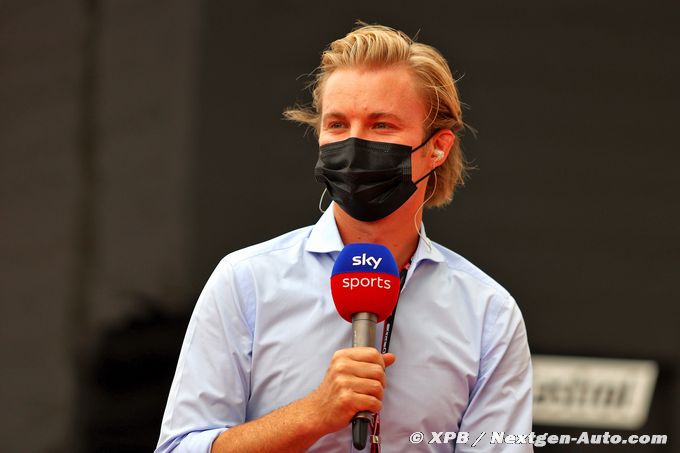Nico Rosberg retired as a driver but certainly not as an investor: the former Mercedes driver started an Extreme E team and is also investing in sturdy mobility.
While Nico Rosberg believes in electrics, F1 is instead betting on hybrids, biofuels and heat engines. The 2016 world champion has thus made a point of making a plea for the electric rather than for the hybrid…
“E-mobility will have a vast impact on our world. Of course, Formula E and Extreme E itself are not perfect, but you have to take initiative to get something right. It is about advancing e-mobility. These two series are in the field, organize programs and show how chilly e-mobility is. “
” This is part of this huge dynamic of change that is happening right now. Every year, forecasts for electric cars are revised upwards in terms of the number of vehicles sold. Formula E and Extreme E certainly play a role in this regard. »
But make no mistake, Nico Rosberg does not disagree with F1’s environmental strategy. In general, moreover, he supports the movement initiated by F1 to show the way on social thought, for ecology or equality.
” I’m very proud. I still consider Formula 1 to be my sport, so I’m proud that they are making such an effort for everything – racism, sturdy development, the commitment to be carbon neutral in 2030, as well as the use of 10% biofuel this year. This biofuel still comes from food stocks, which is questionable from an ethical point of view, but within four years, they will want to use waste and synthetic fuels. “
” Formula 1 has a huge opportunity to play a central role in the deployment of biofuels and synthetic fuels, even in distant will pay and emerging markets . If it can find ways to produce them locally, efficiently and cheaply, it could take a huge step forward in making mobility emissions neutral much faster. “
” Formula 1 is taking all the necessary measures. She doesn’t have to go electric because the hybrid engine is an excellent response, because there is still a long time a space for these combustion engines and the hybrid engine is the best combustion response you can find. would possibly perchance remember. If you combine this with biofuels and synthetic fuels, it’s a great short-term response. »
Yet despite this ecological commitment, F1 announces an extended calendar, at 23 programs for next year, while logistics are the most polluting in sport.
“They’re working on it. By 2025, they plan to make events CO2 neutral, therefore providing fans with shared mobility solutions, electric mobility, the venues will be powered by renewable energy, so they are doing their utmost to make it happen. . The most mountainous challenge, of course, is global logistics – this is challenge number one, and it will be tough to overcome. We will have to find carbon offsets. Then the hope lies in hydrogen planes or, again, synthetic kerosene. “
” Let us not forget the role that Formula 1 has already played: pioneer of turbo engines, which, at the time, was the most popular combustion method. more sturdy; material innovation, use of carbon fiber in mobility, also pioneer in Formula 1. Sport has done a lot for mobility as a whole. “
